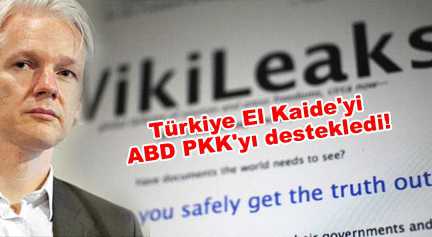
The whole world is following with great interest the flood of internal emails released by WikiLeaks: over 400,000 emails of the Turkish ruling party (AKP), 2.8 million U.S. diplomatic emails, over 30,000 emails sent or received by Hillary Clinton while she was Secretary of State, and 27,000 emails and attachments hacked from the Democratic National Committee.
I will single out a few out of the hundreds of leaked emails that touch upon Armenia or Turkey:
1) On April 19, 2015, Jake Sullivan, Hillary Clinton’s foreign policy adviser, sent an email to a half dozen senior campaign staffers, including Chairman John Podesta, asking if they should issue a statement on the upcoming 100th anniversary of the Armenian Genocide. Sullivan also wanted to know if Clinton would use the term “genocide” as she did as Senator and presidential candidate eight years ago, or will she avoid that term as she did as Secretary of State? Sullivan pointed out that “the White House studiously avoided using ‘genocide’ so far,” and would probably continue to do so. Sullivan wondered whether Clinton’s campaign should proactively issue a statement on the Armenian Genocide or wait until asked to do so by “Armenian groups.” Sullivan ended his email by acknowledging that the Armenian Genocide issue “matters enormously to Armenian-Americans.” Within hours, Podesta suggested that a quotation from Pope Francis acknowledging the Armenian Genocide be included in the genocide statement which ultimately the Clinton Campaign decided not to issue!
2) Ismail Cobanoglu, First Counselor of the Turkish Embassy in Washington, D.C., sent an email on September 9, 2015 to Campaign Chairman John Podesta, asking if Turkish Prime Minister Ahmet Davutoglu could “pay a courtesy call on Mrs. Clinton,” in New York, between Sept. 26 and 30. Strangely, Cobanoglu stated that he had first written to the State Department, but was told that Mrs. Clinton was no longer Secretary of State! Cobanoglu told Podesta that Davutoglu is making this request “in light of his prior friendship with Secretary Clinton dating back to the time when they were colleagues as Secretary of State/Foreign Minister.” On the same day, Podesta told Cobanoglu that Mrs. Clinton’s “schedule is quite difficult, but this would be a priority meeting if at all possible. Huma Abedin, the campaign’s Vice Chair, will follow up.” Podesta then asked Ms. Abedin: “How do you want to handle?” She responded the next day to Cobanoglu informing him that Mrs. Clinton “would be happy to meet with the Prime Minister but we aren’t certain that she will be in NY any of days you suggest. We will let you know as soon as we are more clear on her schedule. We will be in touch soon.” It is not known if the requested meeting ever took place.
3) On December 17, 2010, Huma Abedin, who at the time was Secretary of State Clinton’s Deputy Chief of Staff, forwarded her news about a ruling by the Federal Appeals Court, allowing heirs of Armenian Genocide victims to seek compensation from three German life insurance companies. Interestingly, and ominously, the subject line of Abedin’s email stated that Foreign Minister Davutoglu referred to this court case in his earlier phone call to Clinton. The next day, Harold Koh, Legal adviser of the State Department, sent a copy of the court verdict to Jake Sullivan, Clinton’s Deputy Chief of Staff, and Joe MacManus, Executive Assistant to the Secretary of State, asking them to forward this important document to Secretary Clinton. Koh added that “since FM [Foreign Minister] Davutoglu mentioned it in his phone call to her on Friday, we wanted to get this to her ASAP.” Sullivan sent the court verdict to Secretary Clinton with the following note: “Importance: High.” In my opinion, this was an unwarranted and blatant interference by the Turkish Foreign Minister in the US judicial system, seeking to enlist the Secretary of State in pressuring the courts to reverse the verdict! It is not known if Mrs. Clinton took any action in this regard. However, the Federal Court of Appeals subsequently struck down the earlier decision!
Finally, in a March 17, 2016 email, Campaign Chairman John Podesta listed 39 individuals as potential Vice Presidential candidates for Mrs. Clinton. One of the surprising names on the list was Muhtar Kent, a Turkish-American who is Chairman of The Coca Cola Company. His father, Necdet Kent, was Consul General of Turkey in New York City, where Muhtar was born. He attended high school in Mersin, Turkey. As we know, Mrs. Clinton ended up picking Tim Kaine as her running mate, not Muhtar Kent!





